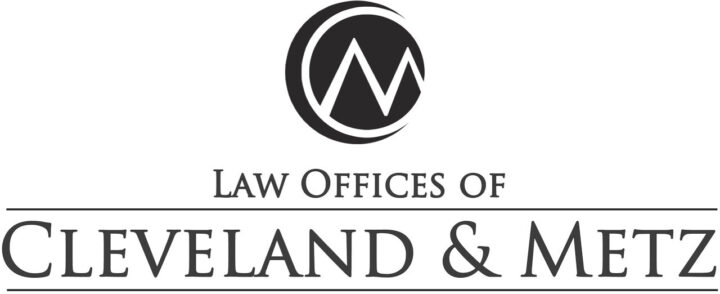Workers Compensation Settlements in California
Workers Compensation Settlements in California
There are two types of workers compensation settlements. They are called a Stipulated Finding and Award and a Compromise and Release. A Stipulated Finding and Award is an agreement which reaches the same decision that a judge would make after a trial. A Compromise and Release completely closes the case.
What is a Stipulated Finding and Award?
A “Finding and Award” is what the judge’s decision is called. A “Stipulated Finding and Award” is an agreement that has the same effect as the judge’s decision. It is entered into voluntarily by both sides rather than being imposed on the parties by the workers compensation judge.
The main components of a Finding and Award are the percentage of disability and whether or not the applicant needs further medical care. The percentage of disability derives from the doctor’s opinion as to your level of disability. There is a formula for determining disability from the language in the medical report, combined with your age and occupation. Usually we have a dispute as to the level of your disability since it is the percentage of disability that determines the amount of money you receive. The benefits awarded by a judge are paid out over time. They are not paid in a lump sum unless the payment has already ended.
Permanent disability is paid at different rates for different dates of injury and for different percentages of disability.
A Stipulated Finding and Award will set forth the percentage of disability which we agree to as well as the number of weeks to be paid and the rate. Each specific percentage of disability is paid for a certain number of weeks.
Permanent disability benefits should begin within two weeks after the last payment of temporary disability benefits depending on your date of injury. Therefore, if it has been some time since your benefits should have begun and they have not, and if we agree that they should have begun some time ago, then there may be some money accumulated already that is due to you.
Permanent disability advances may have begun before your Workers Compensation Settlements. These advances will be counted as credit against the number of weeks that the employer is suppose to pay you. However, the amount you receive per week may go up or down by 15%, depending on whether your employer has over 50 employees and whether they offer you a job. The 15% adjustment no longer exists for injuries after January 1, 2013; permanent disability percentages are paid at a flat rate.
An important part of the Stipulated Finding and Award is the agreement as to whether or not you are entitled to future medical care. There are 2 choices in these types of Workers Compensation Settlements. Either that you are or are not or that you may be entitled to future medical care. If you are entitled or may be entitled to medical care you will need to notify the workers compensation insurance company before you receive medical care. Usually the doctor will do this for you. Be sure that it is done. Usually you should just call your workers compensation adjuster or the person at your company which handles workers’ compensation. If you have already elected a primary treating doctor you should continue to treat with that doctor, but you do have a right to change treating doctors.
After January 1, 2005, you may be required to obtain all medical care from the employer’s or the insurer’s Medical Provider Network.
Attorney’s fees on a Stipulated Finding and Award are often “commuted” from the far end of the award. This means that the fees are paid to the workers compensation attorney now but credited to the employer against the last payments that they would have to make. Since workers compensation attorney’s fees are usually 15%, you would receive approximately 15% less payments then you are scheduled to receive. For instance, if you were to receive 100 weeks of benefits, you would only receive about 85 weeks. The last 15 weeks of payments would have already been paid to the attorney for attorney’s fees. Most people prefer this to paying the attorney first and having to wait for their benefits to begin in Workers Compensation Settlements.
What is a Compromise and Release?
A Compromise and Release closes the entire case and eliminates the need for payments over time. It also closes any right to future medical care. If you have a right to future medical care but would rather pay for it yourself or have some other means such as other health insurance to pay for it, then you may want to consider a Compromise and Release. If you close your future medical care, you are usually compensated to some degree for relieving the workers compensation insurance company of having to pay for future medical care. Most applicants prefer to have their case be completely over if there is no definite need for continuing medical care.
The amount of the Compromise and Release is usually more than the amount of the permanent disability which you would have received over time. The difference is intended to compensate you for future medical care. If all of the doctors agree that you do not need any future medical care then your settlement would be about the same as the amount of permanent disability.
A Compromise and Release is not always possible. Such Workers Compensation Settlements are voluntary, meaning that either party can refuse to close by this method. Also, if you continue to work with the same employer and they are insured by the same insurance company then they normally do not want to settle by way of Compromise and Release. The reason is that they cannot buy the end of the case. If you continue to work there you could be re-injured the day after the workers compensation settlement and they would have to begin paying medical benefits again.
How will my settlement affect Vocational Rehabilitation?
There is no vocational rehabilitation for injuries after January 1, 2004. It has been replaced with a voucher program called a supplemental job displacement voucher. For injuries before January 1, 2004, all vocational rehabilitation benefits have been eliminated by the sunset clause in the reform in SB 899. You can settle your workers compensation case by stipulated award or compromise and release whether or not you engage in vocational rehabilitation.
Can’t I get all of the money and keep the medical open?
While it would be theoretically possible to Compromise and Release the permanent disability but keep future medical care open, it is basically unheard of in Southern California. These hybrid settlements are rare. The whole point of a Compromise and Release from the insurance companies point of view is that they get rid of you. They know how much the case costs and they get it over with rather than having to keep the case open and wonder when you will be going to the doctor again. They also avoid having to keep the case open to send checks every two weeks. Therefore, there is really only the two choices of keeping your medical open and being paid over time or closing everything including your future medical in Workers Compensation Settlements.
What if the workers compensation insurance company won’t make a reasonable offer?
Remember that it takes two sides to settle a workers compensation case. The reason we have judges and trials is to make the decisions when the two sides of the case cannot agree on what is fair. Your attorney can make the argument to the insurance company but if they do not think the case is worth as much as you or your workers compensation attorney think it is then they will not settle the case. At some point if the insurance company will not accept your demand and you will not change or if you will not accept the insurance company’s offer and they will not change then the only alternative is to go to trial.
What happens if the case is settled?
The attorneys will complete forms provided by the court; either a Compromise and Release or a Stipulated finding and Award agreement. There will be presented to the judge who must review the documents and medical reports to be sure that it is adequate for your injuries. The workers compensation judge will then sign either and Order Approving Compromise and Release or the Award made pursuant to the Stipulated Finding and Award. These documents, when signed by the judge, have the effect of an order by the court. Generally speaking, when you receive the order, you should receive your check for the amount of the settlement less attorney’s fees and less any permanent disability advances within 30 days. With a Stipulated finding and Award, you are often already receiving benefits by the time we enter into the agreement. The agreement just determines when those benefits will end.
If you have any other questions regarding Workers Compensation Settlements, please contact your workers compensation attorney.
